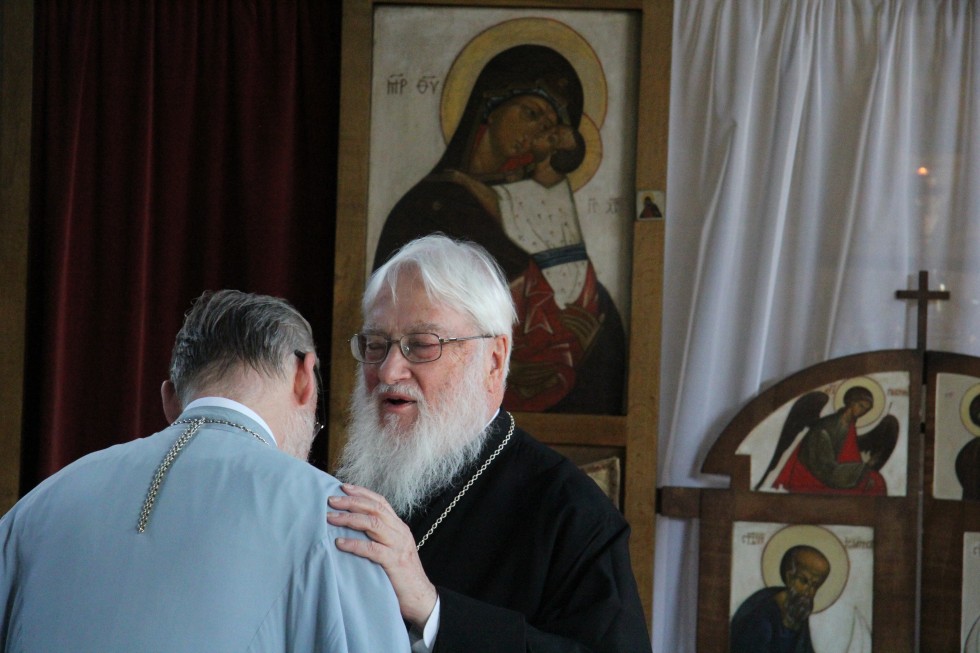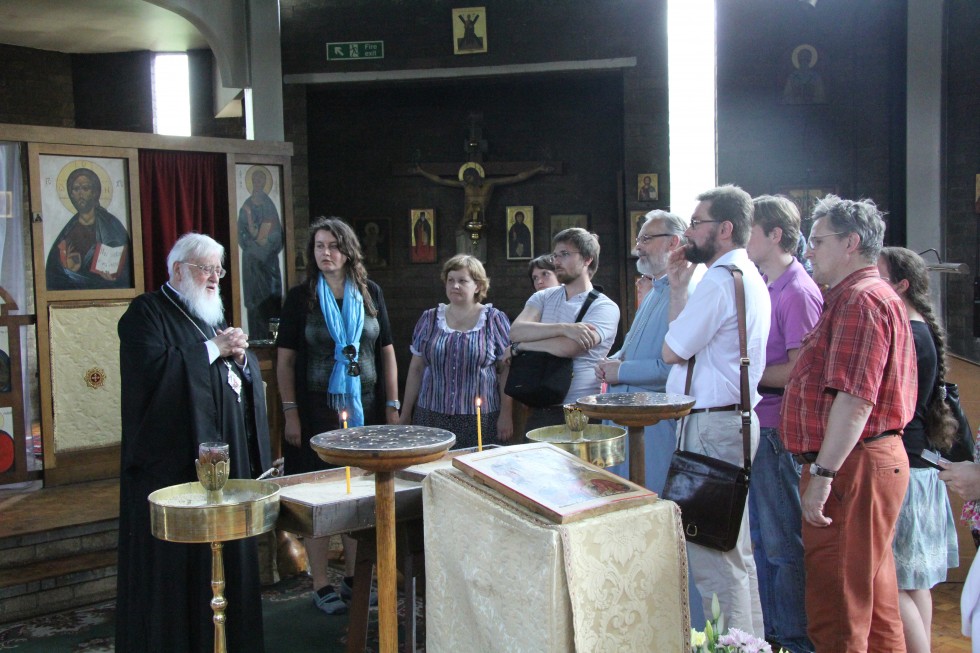“Metropolitan Kallistos: Disciple of the Russian Religious-Philosophical Renaissance”
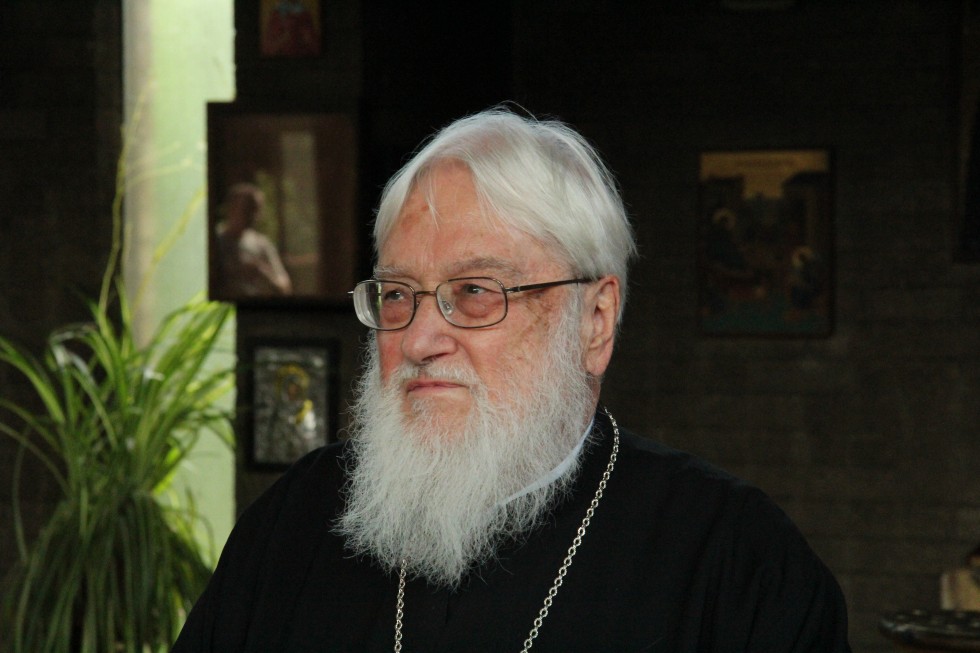
— Fr Georgy, could you please say a few words about Metropolitan Kallistos, perhaps recalling something of your personal interaction with him?
Fr Georgy Kochetkov: The reposing of Metropolitan Kallistos (Ware) is a spiritual event which certainly prompts me to recollection, evaluation, and comment. Bishop Kallistos reconciled certain basic parties which are often at enmity with each other, both within the Orthodox Christian milieu and in the Christian world, in general. He was a man with a western education and a man of western culture — an Englishman, but at the same time nurtured directly by the Russian religious-philosophical renaissance. This was immediately evident to me from our first moment of interaction. In a word, we might speak of Metropolitan Kallistos and another very similar man of blessed memory, Olivier Clement, in a single breath. For some reason they both ended up under the jurisdiction of Constantinople, while nevertheless exhibiting a spirit, as well as a general sense of Christian faith and of Orthodoxy, in particular, that is obviously the direct fruit of Russian spirituality, thought and culture. This is important for us to remember and know; we should think primarily of this, before thinking of their jurisdiction. Of course, we should also remember that when these churchmen were deciding which jurisdiction they would align themselves with, many Russian emigrants — first and foremost within the Exarchate of Western Europe — were also under the jurisdiction of Constantinople. The Exarchate was truly a cradle for the ongoing development of many prominent thinkers of the Russian religious-philosophical renaissance of the late 19th and early 20th century. I believe that this inheritance and succession is one of the main reasons that Bishop Kallistos was so easy to converse with and relate to, which isn’t always the case with people from a western cultural background, and especially from England, for whom everything is always well-presented, decent, etc. … but not always very sincere and open. Bishop Kallistos was always an example in terms of openness.
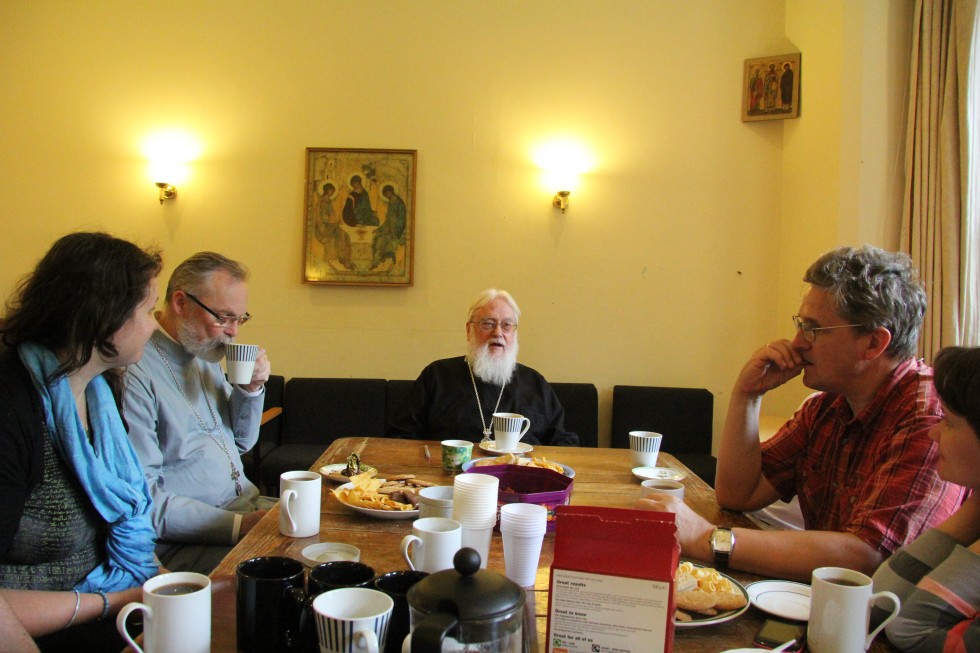
I remember our last meeting, in Oxford in 2013, when, as always, we spoke of life in the church and about the situation of various churches. After some introductory remarks, Bishop Kallistos himself said that secularism is very dangerous for the West. He said this in the spirit of Fr Alexander Schmemann’s heritage, for which reason I immediately redoubled my attention to what he was saying. And when he had completed his thought, I remarked that he was right, but that something else needed to be added, which is that in the Orthodox East the most significant danger isn’t so much secularism, but fundamentalism, although both of these phenomena certainly flirt with heresy, and in some cases certainly cross the line. In any case, they are heresies of lifestyle, and sometimes not only lifestyle, and have a strong effect on various views and interpretations of the Orthodox Christian tradition. Bishop Kallistos thought about this for a few seconds and then expressed his wholehearted agreement. I was glad that we were able to come to a meeting of the minds so rapidly. In fact, I was a little surprised. But this question is very important within the church, and finding mutual understanding is a valuable thing, moreover in discussions on an ecclesiological, theological level, and not just on the level of various disparate facts or evaluations, which are often subjective.
Metropolitan Kallistos’s books are very simple but they contain very good thoughts, making them a joy to read. He was a great supporter of a brotherhood orientation for structuring church life, and he well understood its significance. Moreover, he even endeavoured to do something of the kind where he lived, in Oxford. At one point, hierarchs from Constantinople and Moscow served together in a single church, and all was well. This was true when Bishop Basil (Osborne) was serving, and thereafter.
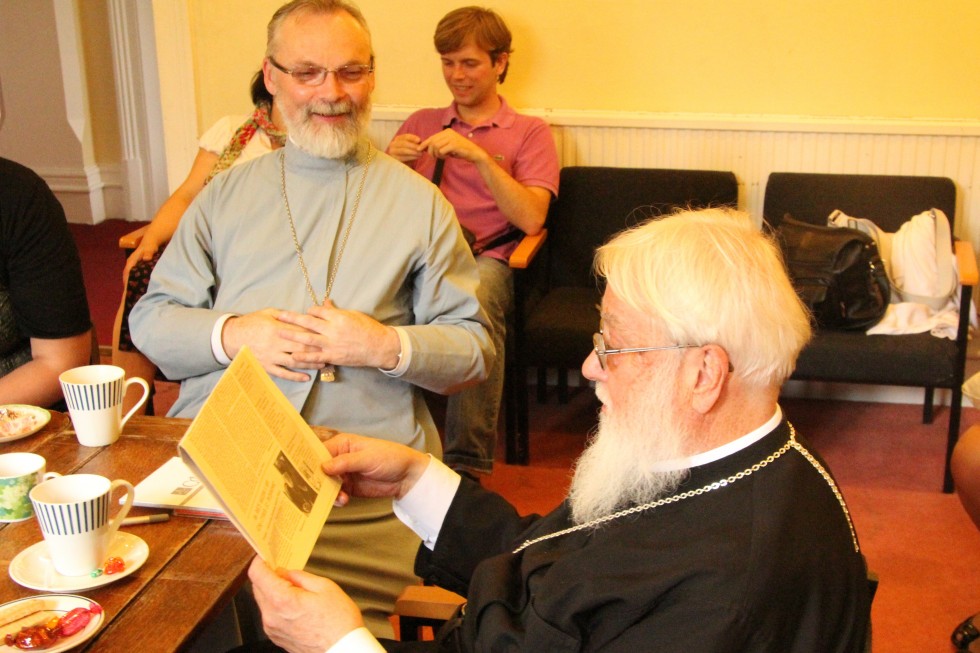
— Fr Georgy, I also remember the Metropolitan saying that Orthodox Christians aren’t good at living together; he gave pride of place to the quality of sobornost as described and defined by Russian theologians. He greatly valued the “Russian word ‘sobornost’”, and emphasized that sobornost is more important than many other qualities.
Fr Georgy Kochetkov: It’s all connected. That’s the reason he so valued community and brotherhood life, because it’s a manifestation of both sobornost and authentic personhood (lichnostnost). And this is the very thing that stood at the centre of Christian life for him, and for people such as Olivier Clement. But, of course, not only for them! This is the revelation of Orthodox Christianity to the entire Christian world, and it should be at the centre of Christian life for all of us. Sadly, many Orthodox Christians do not yet themselves understand this revelation.
— I believe that at that same meeting in Oxford, Metropolitan Kallistos called anthropology the hottest topic in contemporary Orthodox theology. He said that if the 20th c. had been the century of ecclesiology amongst Orthodox theologians, then the 21st c. was going to be the century of anthropology.
Fr Georgy Kochetkov: Exactly right. He knew that I was working on “A New Christian Anthropology”. It was at that point that I was finishing work on that particular section of a big work on sacramentology (mystagogy). It wasn’t yet published, but some materials had already been pulled together. We also talked about this, and he really did believe that the 21st c. would belong to anthropology, which also very much pleased me. I think exactly the same thing — that ecclesiology, however strange it might seem now – was a sort of preparatory stage, just like the teaching on the Holy Spirit. The field of ecclesiology that was so important in the 20th c. brought us to the point where Christian anthropology, with its attendant revelations regarding personhood and sobornost, is now the focus of our Christian tradition. And here, it is primarily Russian thinkers, whom it would be difficult to call theologians, who should be credited. These men were more ecclesiologists and anthropologists – from Khomyakov, and perhaps even Pushkin, through Dostoyevsky and Berdyaev, up until our very day. And, of course, Bishop Kallistos made his own very significant contribution to this picture.
Metropolitan Kallistos’s heritage will not be forgotten. He will be read. Some of his views won’t be accepted. In some ways he was very much a man of his own culture and mentality; but I do think that in future his works will be valued. They are accessible, yet speak of very important things. He isn’t some sort of scholastic; Bishop Kallistos always strove to link teaching and life, and this is his great merit and a good example for all of us. I will remember Bishop Kallistos as a man full of light and blessing, who was able to understand his tradition, life and other people including those with whom he may have had differences of opinion. Such people are always worth their weight in gold, but in our time this is especially so.
Grant peace and rest in your Bosom, o Lord, to your newly departed servant, Metropolitan Kallistos! Memory Eternal!
